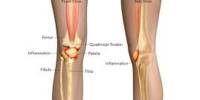T cells, also known as T lymphocytes, are a type of white blood cell that plays a crucial role in the immune system. They are named T cells because they mature in the thymus gland, an organ located behind the breastbone.
Although the origin of blood’s acetylcholine is unknown, it regulates blood flow. Recently, scientists at the Karolinska Institutet found that specific T cells in human blood can create acetylcholine, which may help control inflammation and blood pressure.
The research, which was published in PNAS, also suggests a link between the presence of these immune cells in critically ill patients and an increased risk of dying.
Acetylcholine has a lengthy history of controlling blood flow, as underlined by the 1998 Nobel Prize in Physiology or Medicine. Yet the sources of acetylcholine in human blood have been unclear.
Previous research, such as studies by Peder Olofsson’s group at Karolinska Institutet in Sweden, has shown that a certain type of immune cell known asChAT+ T cells can produce acetylcholine and affect endothelial cells in the blood vessels of mice. However, it has not been known if these types of T cells exist in humans.
Our findings are of clinical interest and could contribute to new diagnostic and therapeutic opportunities for seriously ill patients with excessive inflammation.
Peder Olofsson
“We now show that human T cells can also release acetylcholine,” says the study’s joint first author Laura Tarnawski, assistant professor at the Department of Medicine (Solna), Karolinska Institutet. “This corroborates previous findings in different model systems and may contribute to the development of treatments for cardiovascular disease and inflammatory diseases.”
T cells are a key component of the adaptive immune system, which is responsible for recognizing and targeting specific pathogens or abnormal cells. These cells have specialized receptors on their surface called T cell receptors (TCRs) that allow them to recognize specific antigens presented by other cells.
Although acetylcholine is an important neurotransmitter in the brain and nervous system, its function in inflammation is of special interest to researchers.
“We’re interested in how the brain communicates with the immune system, which is something we still know relatively little about,” says the other first author Vladimir Shavva, assistant professor at the same department. “Our new study shows that acetylcholine in the blood can be secreted by immune cells, which can regulate inflammation in the blood vessels.”
The findings are based on analyses of blood from healthy blood donors. Higher relative blood levels of ChAT+ T cells were linked to a lower probability of passing away, according to research on 33 patients with severe circulatory failure who had been admitted for intensive care.
“Our findings are of clinical interest and could contribute to new diagnostic and therapeutic opportunities for seriously ill patients with excessive inflammation,” says principal investigator Peder Olofsson, senior researcher at the Department of Medicine (Solna).
The team now intends to examine the distribution of ChAT+ T cells in various patient populations and organs, as well as how these cells influence inflammatory and metabolic processes.
The study was financed by the Swedish Research Council, the Swedish Heart Lung Foundation, the Knut and Alice Wallenberg Foundation, MedTechLabs, the ALF project scheme, the Lars Hierta Memorial Foundation, the Gösta Fraenckel Foundation, the Loo and Hans Osterman Foundation and the Foundation for Geriatric Diseases at Karolinska Institutet. Peder Olofsson is a shareholder of Emune AB.
Co-author Michael Eberhardson has received lecture and consultancy fees from AbbVie, Merck (MSD), Takeda, Ferring, Orion Pharma, Otsuka, Tillotts, ITH, Novartis, Pfizer, Bristol Myers Squibb and Janssen and research grants from AbbVie and MSD. All other authors report no conflicts of interest.
















